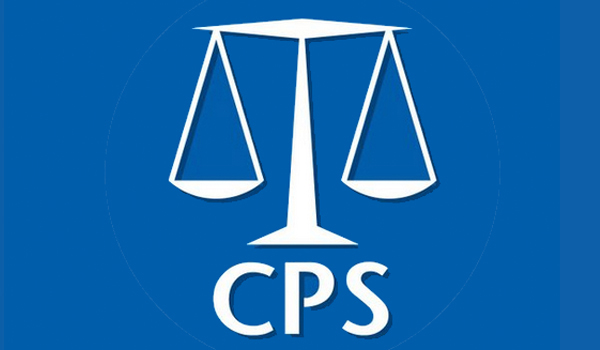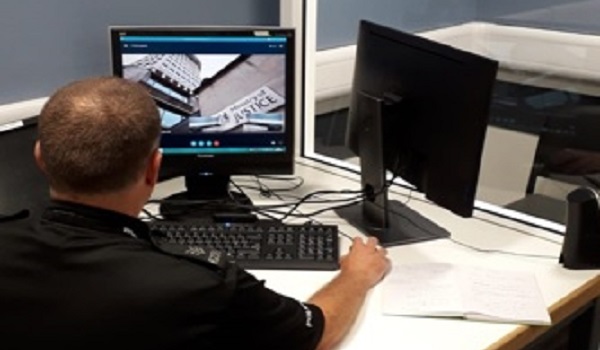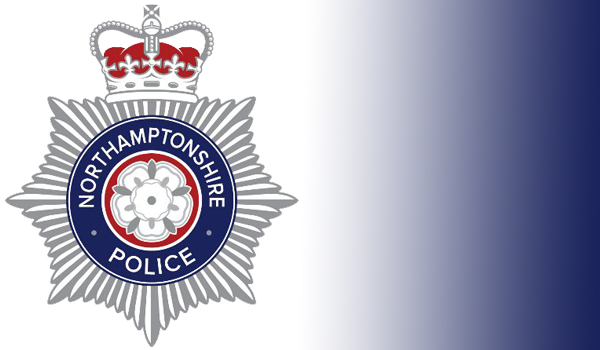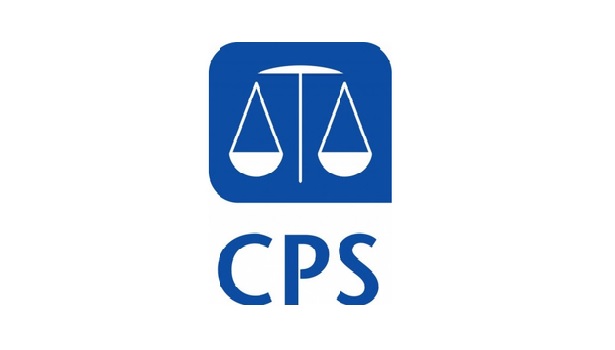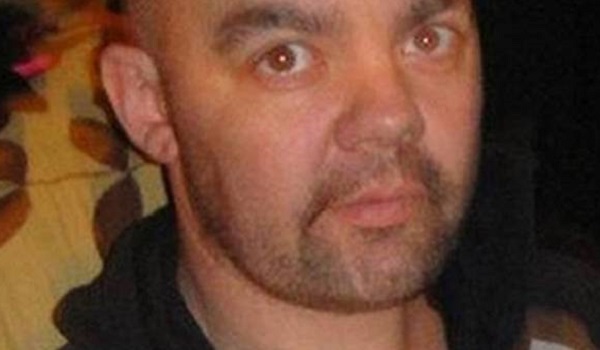CPS hits back at ‘misleading and inaccurate reports’ on rape prosecutions
The Crown Prosecution Service (CPS) has defended its record on rape cases and maintained that where the legal test is met “it will always prosecute”.
It follows what it claims are “a number of misleading and inaccurate reports” about how rape is prosecuted by the CPS following the End Violence Against Women Coalition’s (EVAW) judicial review.
The judicial review against the CPS for its failure to prosecute rape was initiated in June 2019, and while a ‘permission hearing’ took place in March, a full hearing was not granted. This is being appealed and the EVAW is currently awaiting a hearing date.
On Tuesday (June 30), the EVAW, together with women’s groups Imkaan, Rape Crisis England and Wales and the Centre for Women’s Justice, delivered “a large evidence bundle” from the landmark judicial review case to the Justice Secretary, urging him “act on the CPS failure to prosecute rape as part of “system-wide failings”.
The women’s groups allege that the CPS had changed its policy and practice on rape leading to “a catastrophic collapse in the number of rape cases charged and making it to court”.
They say that in 2018/19 there were almost 60,000 reports of rape to the police, but less than 1,800 men charged, and less than 1,000 convictions.
The evidence bundle includes:
- The detailed statement of a CPS whistle-blower, which sets out how the CPS secretly chose to change its policy on charging rape cases, with the catastrophic collapse in charging that resulted;
- A dossier of 20 women’s rape cases which the CPS decided not to charge, including a woman held at knifepoint, a woman whose rape was filmed and video found on suspects phone, multiple cases involving mobile phone messages where the suspect admitted to the offence and another where CPS gave the fact that the survivor had “enjoyed an adventurous sex life” as a reason not to charge;
- A detailed ten-year statistical analysis of police and CPS official performance statistics on rape, which finds the data entirely consistent with a change in approach, and cannot be explained by the reasons offered in the CPS defence of the case;
- The legal facts and grounds of the judicial review complaint against the CPS; and
- A statement from the EVAW dealing with the lack of transparency and consultation in the change of approach
“And, critically, included with the legal bundle is a report published recently by Imkaan, the leading network of black and minoritised women’s abuse organisations and the University Warwick, which is based on in-depth interviews with black and minoritised rape survivors and examines the catalogue of failure and racial discrimination facing black and minority ethnic women if they do report rape,” said the groups in a joint statement.
“Also included is a new briefing specific to the CJS drawn from this evidence. Consideration of inequalities has so far hardly featured in the ongoing government Rape Review.
“The women’s groups enclose the evidence with a letter to the Secretary of State for Justice Robert Buckland in his capacity as chair of the Criminal Justice Board, which is currently overseeing an ‘end to end review’ of the police, CPS and courts’ performance on rape, with a view to making recommendations for change.
“This review was commissioned in March 2019 when it became clear that prosecutions were in freefall despite increasing reports to the police, creating a massive justice deficit.”
The women’s groups are also making the evidence available online.
However, the CPS said it is concerned that “misleading and inaccurate reports about how rape is prosecuted by the CPS” will deter victims from coming forward.
“We share the concern about the gap between reported rapes and those cases which come to court. But the recent judgment of the High Court on their [EVAW] judicial review claim was clear: there has been no change of approach in how CPS prosecutes rape. There is nothing new in the documents published today. The case was heard by a court including one of the most senior judges in the Court of Appeal; they saw every single piece of material that has been published and found no arguable basis for EVAW’s claims.
“Despite this there are still claims the CPS has unlawfully changed its approach to rape cases by removing considerations of what is referred to as ‘the merits-based approach’. The court was clear that the full code test – the CPS’s legal test to bring a prosecution – has always included and still includes the merits-based approach. This was accepted by EVAW’s Counsel in the judicial review and it is misleading to continue to allege that the CPS has changed its approach on this basis.”
The CPS said this means a prosecutor must make “an objective assessment of the evidence in every case”, including the impact of any defence and any other information that the suspect has put forward or on which they might rely.
“It means that an objective, impartial and reasonable jury or bench of magistrates or judge hearing a case alone, properly directed and acting in accordance with the law, is more likely than not to convict the defendant of the charge alleged,” it added. “This is a different test from the one that the criminal courts themselves must apply. A court may only convict if it is sure that the defendant is guilty.”
The CPS said this view was further supported by the findings of Her Majesty’s Crown Prosecution Service Inspectorate (HMCPSI). Its report, published last December, concluded that the CPS legal test “was correctly applied in 98 per cent of cases”.
“The High Court said that taking the material submitted on behalf of EVAW at its highest, their case could not properly succeed,” added the CPS.
“As part of this conclusion, they considered the 20 case summaries and found they did not support the claim. The brevity of these summaries does not adequately reflect the complexity of these cases. The vast majority of these charging decisions were re-examined by independent lawyers under the CPS Victim’s Right to Review Scheme who concluded there was no realistic prospect of conviction.”
The CPS said lawyers who work in rape and serious sexual offences units are extensively trained, adding: “The court was satisfied the HMCPSI report contradicted unfair and misleading claims that there was a systemic and unacceptable risk that prosecutors wrongly applied the bookmaker’s approach or were risk averse.
“The court also said that the expert evidence from Professor Abigail Adams (from Oxford University) was very carefully worded and did not give any conclusive view as to the question of causation. In her first report she indicated that there are other potentially relevant events relating to the significant fall in rates of charging and conviction in rape cases, which she admitted caused difficulties for her analysis.
“Many of the grounds for appeal of the judgment have now been abandoned and EVAW themselves have acknowledged there was no unlawful application of the ‘bookmaker’s approach’ and that there is no significant and reliable evidence that the CPS did not apply the Code for Crown Prosecutors. The appeal now being pursued is more limited in scope and does not include those elements.”
The HMCPSI report found that there were some areas where improvements could be made to the way in which rape cases are handled and the CPS said it “accepted the recommendations in full” and was working closely with police colleagues to address these.
“We hope that the High Court’s judgment and the HMCPSI report will provide some reassurance of our commitment to prosecuting these dreadful crimes,” it said.
“The CPS is focusing on how, by working with partner agencies and stakeholders, we can continue to make progress on securing justice for everybody affected by sexual violence.”
However, the Victims’ Commissioner said the judicial review evidence appears “deeply damaging’ for the CPS”.
Dame Vera Baird said: “The collapse in rape prosecutions is of overwhelming public importance.
“It has no doubt triggered a fall in public confidence in CPS and in the criminal justice system alike.
“Some police officers say they now refer fewer cases to the CPS because they know such a small number will be taken forward for prosecution.
“This downward spiral is leaving thousands unprotected and has given rise to the strong argument that rape has now been decriminalised.”
Dame Vera said CPS statistics show that in 2013/14 the organisation charged 3,621 rape suspects – 61.9 per cent of all charging decisions were decisions to prosecute, the highest charge rate on record.
In 2015/16, 3,910 suspects were charged with rape, the highest number of rape charges on record. In contrast, in 2017/18 only 2,822 suspects were charged, and only 46.9 per cent of all charging decisions were decisions to prosecute, a fall of 23 per cent, said Dame Vera.
“In the CPS Violence Against Women and Girls’ (VAWG) report in 2019, the figures are even worse. The number of charges is reported as 1,758, representing a sharp fall of 37.7 per cent. This is the lowest figure on record. The proportion of suspects charged was 34.4 per cent, the lowest figure on record,” said a statement by the Victims’ Commissioner’s Office.
“This year’s figures are expected to be even worse.
“The statement of ‘XX’ – a CPS ‘whistle-blower’ – sets out how the CPS moved away from a merit-based approach to prosecuting rape.
“Under that approach, the CPS had charged cases on their merits, quite rightly, even if some of them presented a challenge.
“Each successful or unsuccessful charge taught CPS more about how to continuously improve the outcomes in rape cases, which are always difficult. That approach led to prosecutions and convictions increasing simultaneously to an all-time high and to justice for more complainants and a potentially deterrent effect on this appalling crime.”
It is claimed that since a series of roadshows conducted by the Director of Public Prosecutions’ (DPP) legal adviser from autumn 2016 throughout 2017, “the merits-based approach has disappeared from CPS documents and training, apparently to be informally replaced by what the court of appeal has called the ‘bookmakers’ approach’”.
The judicial review claims the ‘merits based approach’ is credited with increasing the number of rape convictions.
“In practice, this suggests taking into account the harmful myths and stereotypes, which can affect juries’ verdicts to work out whether is the case a safe bet for a conviction,” added the Victims’ Commissioner.
“Such an approach has been frowned on by the Court of Appeal for many years. It has led to this significant drop in prosecutions.
“What we are left with is just 1,754 charges last year, during which there were more than 58,000 complaints of rape.
“Despite powerful evidence, the CPS continues to deny a change of policy.”
Expert analysis also published this week from the judicial review by statistician Professor Adams states “that there are no other explanations for the catastrophic drop in prosecutions and convictions, save a change in policy”.
“The fact that this catastrophic fall in prosecutions can be allowed to happen against a backdrop of constant denials of any change in policy and practice and thus with no proposals for improvement raises serious questions as to the accountability of the CPS to the public it is meant to serve,” said Dame Vera.
“If the CPS is unable or unwilling to address the reasons behind the unacceptable fall in prosecutions, then it is time for the Government to step in and act.”
The EVAW said the evidence from a whistle-blower, in the judicial review evidence shows that the director of legal services, Gregor McGill, led a series of road shows for RASSO (rape and serious sexual offences) prosecutors where “he suggested there should be a ‘touch of the tiller’ which would effectively lead to a drop weaker cases.”
“Such instruction is very likely to leave prosecutors in local areas with the incentive to second guess what a jury might think and decide not to charge for example in cases where the complainant may be ‘blamed’ for what happened due to prejudice and myths about rape,” it added. “It is not the job of the prosecution service to second guess jury prejudices; the job is to build the strongest case possible, based on each cases ‘merits’ and with an examination of the giving and seeking of consent.”
Sarah Green, director of the EVAW, said: “Our case against the DPP showed the very high level of power the DPP has to make decisions in key legal areas, with the absence of any means to scrutinise him. We need the Government’s Rape Review to deliver ambitious recommendations that will meaningfully address what currently amounts to the effective decriminalisation of rape. The only way it can do that is by taking account of the compelling evidence that we have presented today.”
Baljit Banga, executive director of Imkaan, added that the women they spoke to as part of its research – Reclaiming Voice – described the different ways they were forced into silence at personal, family, community and societal levels – “which they lived with for as long as 15 years before seeking help”.
“Women spoke about the silencing and damaging impact of racialised and gendered myths within different institutions including the police and courts,” she said.
“If we are to provide justice and protection to all women and girls who are subject to sexual violence, it is imperative that we address structural and systemic racial injustices and institutional discrimination which exist within the CJS. This cannot be achieved through ad-hoc discussions or training sessions but requires systemic, cultural change otherwise we will continue to fail black and minoritised girls/women.”
Centre for Women’s Justice director Harriet Wistrich said: “The extensive evidence we have assembled for the judicial review demands careful scrutiny; we have no doubt that it shows that the CPS have changed their approach to reduce the number of rape prosecutions being brought. We continue to be inundated with inquiries from rape victims who have been told by the CPS that their cases will not be prosecuted, despite compelling evidence and the risk that dangerous men will feel free to offend again.”
Katie Russell, national spokesperson for Rape Crisis England and Wales, said it was “only right this wealth of significant evidence be delivered to Government and carefully considered as part of its ongoing Rape Review”.
She added: “It is clearly evident, both from official statistics and the first-hand experience of victims and survivors and the Rape Crisis and other specialist workers who support them, that the criminal justice system is failing on all forms of sexual violence and abuse and has been for some time.
“The significant majority of those who are subjected to these traumatic crimes don’t currently have the confidence to report to the police, and a small minority of those who do go on to see the perpetrator even charged, let alone convicted. This means the overwhelming majority of people committing these serious offences are walking free.
“This is a monumental failure not just of criminal but of social justice – one that affects everyone and with which everyone should be deeply concerned. Victims and survivors of rape, sexual abuse and all forms of sexual violence simply deserve better.”
The women’s rights campaigners said “there is enormous public interest in the case” and more than £80,000 has been raised in a CrowdJustice crowdfunding appeal.


